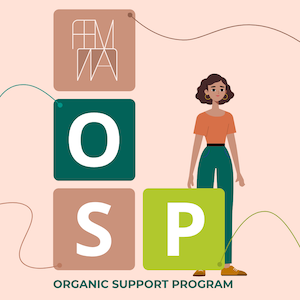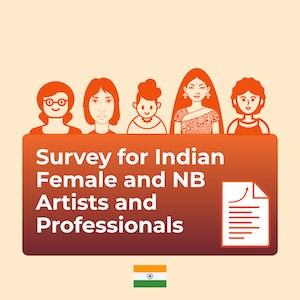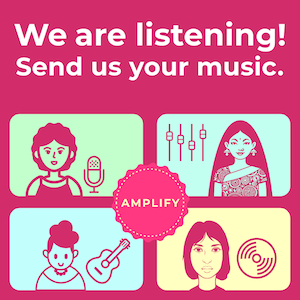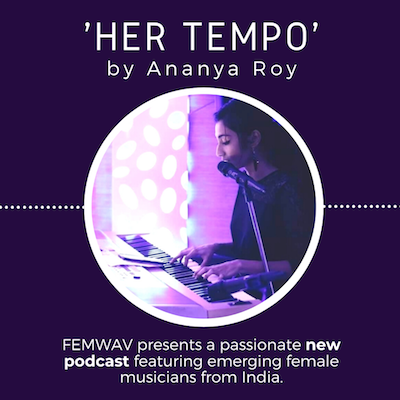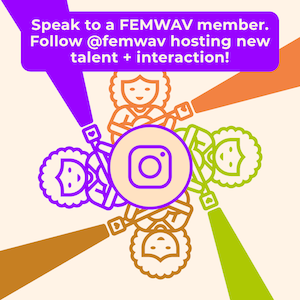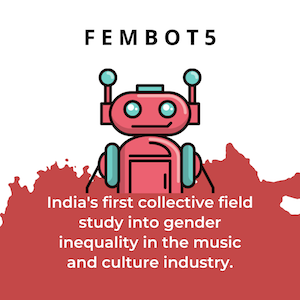Art for All
Art & Inclusivity: Talking to Emmanuelle de Decker of Music Mulakatein and Gatecrash
A 2012 Honing and Ploeger paper Cognition and the Evolution of Music: Pitfalls and Prospects, kicks off with the question "Music appears to be of little use. It does not quell our hunger, nor do we live a day longer because of it, so why argue that music is an adaptation?" The paper goes on to argue that musicality in humans is cognitive adaptation, which although theorized popularly is still some way from becoming a scientific fact. What interests me is the presupposition in the quote that music isn't a fundamental requirement for survival. We can all agree it is possible to live a life without music, but what kind of life is that?
Music saves lives. Billions of complex, individual narratives exist in the world to this effect, and perhaps one of them is mine, or yours, Dear Reader. It is, therefore, unfortunate how conventional (or contemporary) musical communities come built in with divides that are seldom challenged, let alone upturned, by those that benefit from it. From the undeniably casteist roots and structures of Indian classical music, to the absolute alienation of non-English-speaking audience by the Indian electronic underground, it seems like barriers go up even before foundation is laid in creative communities, exacerbating social segregation, all the while denying its existence.
Gatecrash's Emmanuelle de Decker is one of few working towards eliminating these barriers through her grassroots initiative Music Mulakatein. She co-founded Music Mulakatein with Tanish Thakker in September 2018 in an effort to de-class the arts in Mumbai and beyond.
One of the latest Music Mulakatein concerts was on Nov 25, 2019 at Chatrapati Shivaji Vidyalaya, a public school in Dharavi - with a performance by The Great Harry Hillman - a Swizz jazz band. This was organised in collaboration with the NGO "Enabling Leadership" for about 150 kids from 8 to 12 years old. The end of performance saw two young children jam with the band through rap and beat-boxing.
Aside from organising monthly concerts in Mumbai slums, Music Mulakatein conducts singing, rap, songwriting workshops, and offers a 3-month professional internship in music management to young adults from under-privileged backgrounds. There is great emphasis on women's empowerment in this training, and it is this approach that led the Music Mulakatein to impart this training girls from Kranti - an NGO committed to improving lives of sex workers and their daughters.
"I've always been extremely touched by discrimination and social injustice, and I've started wondering how I can do my bit to change social stigma, with whatever I know, even if it's just a small drop. What I know is music management, and I believe that job can be taught to anyone who is actually motivated to do it. So I wanted to give a chance to girls who usually don't have access to this kind of opportunity to learn skills that they can then use in anything that they do in the future," elaborates Emmanuelle, when asked about the values that led to the forming of Music Mulakatein and the consequent training programs.
This internship program covers basics of social media research and management, basic computer proficiency including MS Office, creative development through phone photography/videography training and poster design, as well as event co-ordination, and all of this specifically in context of music management. This context secures valuable industry insight, with the help of Emmanuelle who has exhaustive music management experience herself, translating into a potentially 'employable' skill.
"So far, our interns were recommended and selected by Robin, KRANTI's founder. We've had 4 interns: 3 girls from KRANTI and 1 girl from CORP INDIA, who had heard about us from KRANTI girls! They did a 6-month internship, part-time. They were around 18-19 years old, so they pursued their studies during and after this internship, and they didn't look for a job as they are still studying. But they did learn a few things like typing on a laptop and making a simple poster, that they are using now either for their studies, or for their NGO.
The next batch will hopefully be starting around mid-2020, for 4 young adults per cohort. We'll be writing and sending an internship description offer to the NGOs we've worked with in the past (Sneha, Akshara, Apnalaya, Corp, etc.) and interested applicants can apply to it by sending a resume."
Some of the requirements are that the applicants should be around 22 to 24 years old, know basic English, and be able to go out at night to attend concerts.
These efforts have not come without their own set of challenges, of course. Regular attendance continues to be an issue with enlisted interns. Since the girls pursue academics or activities with their respective NGOs alongside, they find themselves often unable to consistently be present for internships. Which explains why the applicant age has been raised to 22-24 years as opposed to younger - it is to ensure that interns have by then wrapped up crucial academic training, instead of choosing one over the other.
Another persisting issue is of memory. "The girls lack focus and attention. It might be caused by their complicated personal situation (one of the girl's mothers has AIDS, another one was fighting with her roommates at her boarding school), or their daily schedule (they're following therapy sessions that might be draining them sometimes, or one girl could never eat properly because her classes at school were during breakfast and lunch hours) hence it is important to know about these sensitivities of the interns as it really impacts the training program."
Emmanuelle's goal through Music Mulakatein is to create a support system for artists, music professionals, and creative entrepreneurs who don't have industry access because of barriers we previously brought up: language, caste, socio-economic background. Which is why Music Mulakatein has dedicated itself to cultivating said network by introducing those living in Mumbai slums to live music and recruiting candidates for internships with monthly stipend.
As an aside, and this may seem unbelievable - and this disbelief is immediately illustrative of our own privilege more than anything else - a lot of the people who attended these concerts had never experienced live music before. Let's chew on that a while, but perhaps not too long, because work is to be done.
Currently Emmanuelle and the rest of the Music Mulakatein collaborators are busy raising funds to support and intensify their endeavours. 2019 saw 12 concerts, 4 workshops, and over 1,000 attendees. They hope to expand these numbers to organise weekly concerts, a minimum of 10 workshops, along with a number of internships in 2020.
"From mid-2020 onward, we want to organise an event every week, with the simple agenda to offer free concerts or workshops to as many people as possible, because we think that access to a live concert and laughter should be a right for all."
Public access to the arts is key to transforming communities, and this initiative can go a long way towards fostering interactions among lower income communities and making them feel invited and welcomed in spaces that are little better than cliques in their current form. Artistic interventions foster attachment, and creative education sparks economic growth.
It will take more hands, more heads, more resources than just Music Mulakatein, but it is an excellent place to start. Now it a great time to ask yourself how you can contribute to widening their reach as an artist, creative professional, investor, co-ordinator - the possibilities are endless. If you find their work exciting, we urge you to get involved.
Written by Uvika Wahi

TOP FEATURES

Krameri
June 19, 2022

The Woman Who Fell to Earth: Asha Puthli
October 30, 2019

Cool to Be Kind: Bawari Basanti
November 15, 2019

FEMWAV make space please mix 004: Pooja B
November 07, 2019

For What Words are Worth: Arundathi Manakkad
June 18, 2019

Priyanjali Goel - Opera and Software Engineering!
November 08, 2021

Spotlight on Aneesha Kotwani
January 02, 2021

FEMWAV make space please mix 008: Lush Lata
March 20, 2020

Pulpy Shilpy and MC Manmeet Kaur to Play '2024' Mumbai
June 12, 2019






